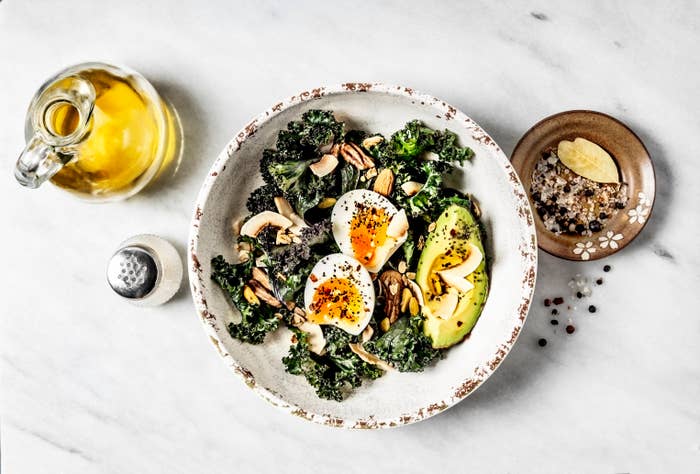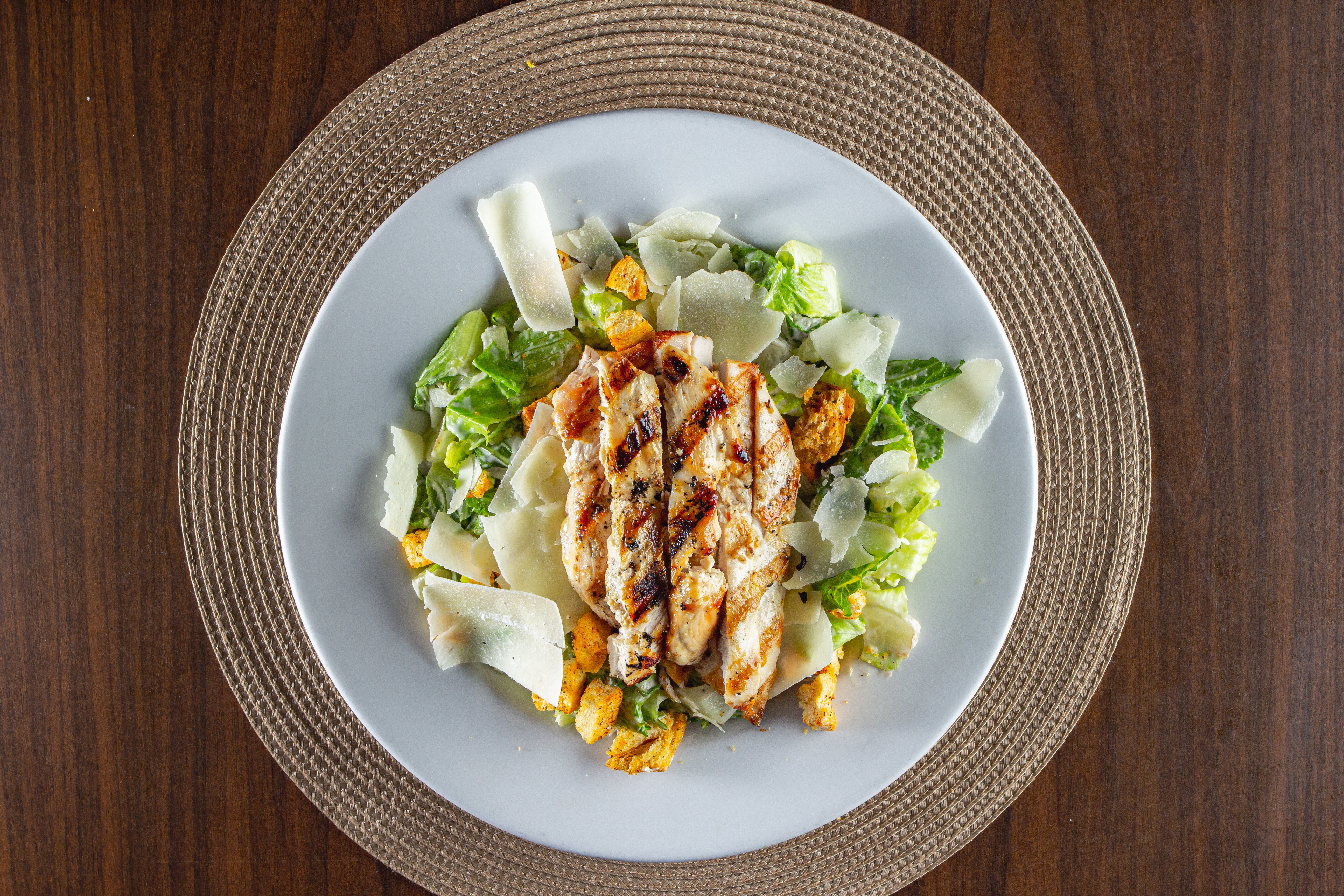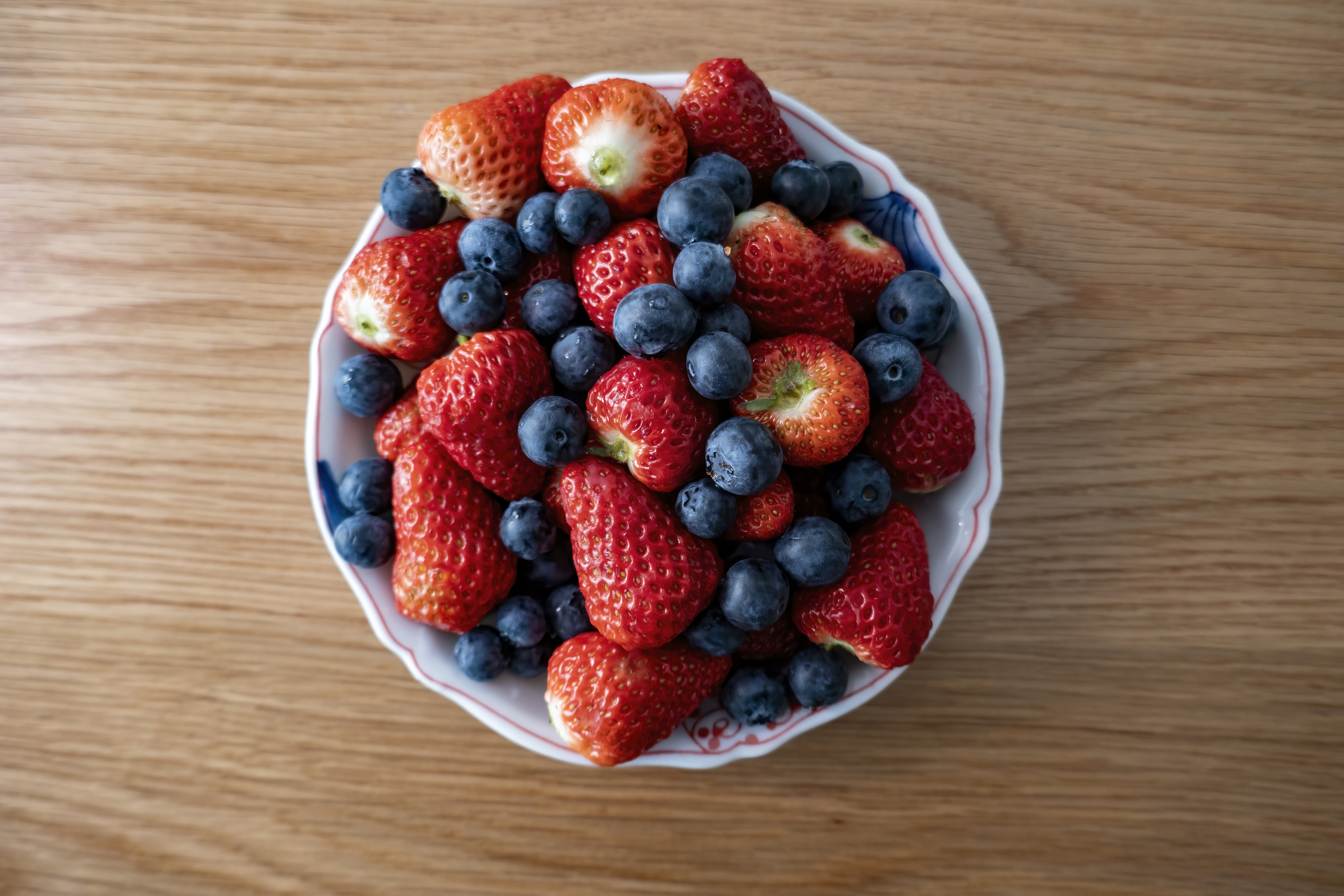
If you’re a woman who’s in her mid-40s, you’ve probably witnessed a number of fad diets and nutritional holy grails over the past few decades. Now that you’re (just a little bit) older and wiser, you’ve likely settled into a pattern of eating that works for you and makes you feel energized and nourished at least most of the time.
But you may have noticed a few changes to your body in the past few years. “For most women, perimenopausal symptoms might have been happening since your mid-30s,” said Dr. Stephanie Faubion, medical director of The North American Menopause Society and director of Mayo Clinic’s Center for Women’s Health. “The typical age to begin menopause is 45.”
There are changes ahead, no doubt, but you can help yourself ease into this next phase of life by making some smart nutritional choices to help yourself age as gracefully as possible.
You may already have been noticing weight gain, or a redistribution of weight, with more settling around your belly area, Faubion noted. “We lose muscle mass by 1% a year after age 50, and most adults gain about a pound and a half each year progressively through middle age,” Faubion said. But she said weight gain, while challenging, isn’t inevitable.
“You can’t exercise it all off, so you need to pay attention to what you’re eating,” she said. “You don’t have to deprive yourself, though, and you can have a beautiful, healthy diet that’s filled with fruits and vegetables.”
Here’s your "window of opportunity" to eat more nitrate-rich veggies.
Maryann Jacobsen is a registered dietitian and midlife health expert who noted that “many women over age 45 are at an increased risk for nutrient deficiencies, even when they eat the way they always have.”
She said this might be the best possible moment to switch things around on your plate. “Health experts call the time of life a ‘window of opportunity,’” she said. “That’s because the decisions we make at midlife will affect our health in our older years.” It’s a good time to up your intake of nitrate-rich vegetables such as leafy greens, celery, and beets.
“These help women increase their nitric oxide levels that decline with both aging and hormonal changes,” Jacobsen said. “In fact, one study showed that two salads a day helped increase nitric oxide-related blood flow in midlife women.”
She also suggested a renewed focus on micronutrients, including magnesium, zinc, choline, omega-3s, iodine, B vitamins and selenium. “Aging and lower estrogen levels affect how much of those micronutrients the body absorbs,” she said.

Don’t go hungry, and don’t miss out on protein.
“One of the biggest nutrition mistakes that I see is women going on extremely low-calorie diets,” said Courtney Delpra, a dietitian at the Cleveland Clinic. “When your estrogen levels start to dip, as they do in your mid-40s, this also decreases muscle mass. If you respond by skipping meals, that can have a negative effect. Think of your metabolism as a bonfire. If you don’t put enough logs on your ‘fire,’ it’ll dwindle. Undereating, chronically, can affect how you metabolize your foods, so it’s key to get enough calories with the right macronutrients.”
Delpra recommended including enough protein throughout the day. “The biggest key is getting 20 to 30 grams of protein with each meal.” You can easily take in that amount with a focus on lean proteins, such as 4 ounces of chicken or turkey, 3 ounces of fish, a cup of beans, or a handful of nuts or seeds.
“When it comes to higher-fat meats, such as red meat, the American Heart Association recommends just one to two servings per week,” she said.

Eat more fiber to manage cholesterol.
As great as protein can be, it’s just one part of your nutritional mix, so the experts emphasized the importance of striving for balance. “A common mistake women make is spending too much time focusing on one aspect of nutrition,” said Jennifer Salib Huber, a registered dietitian and licensed naturopathic doctor whose Instagram handle is @menopause.nutritionist.
“Some will overemphasize high-protein eating, and some others will become overly focused on limiting carbohydrates to the point that they aren’t getting enough fiber.” That’s a mistake, because fiber can be key in helping you stay healthier.
“Giving fiber intake a bump can help manage the 10% increase in cholesterol levels that most women often see in menopause, along with an increased risk of insulin resistance and diabetes,” she added.
The American Academy of Family Physicians also has suggested that women over 40 eat more foods with fiber, like berries, whole grains, and nuts, with a goal of about 25 grams each day. (Examples: raspberries have eight grams of fiber per cup, nuts have three grams per ounce, and a cup of cooked oatmeal has four grams.)
Plan on a "good enough" diet for your health.
“Women need to find a way to enjoy healthy eating that fits their life, without guilt,” Huber concluded. “It needs to be flexible and forgiving, and not based on rules designed to control what you can and can’t eat. So give yourself permission to lower the bar and make a most-of-the-time ‘good enough’ your standard, instead of striving for perfection every time.”
This post originally appeared on HuffPost.
